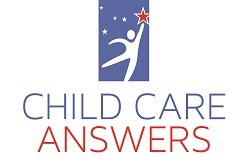By Nancy Shute
US News and World Report
Does spanking your child make him behave better, or set the stage for bigger trouble? A new study says that spanking children at age 3 makes them more likely to become bullies by age 5. But the news has sparked ire from parents who say they were spanked as children, but have turned out just fine, thank you.
The study, by Catherine Taylor, an assistant professor of community health sciences at Tulane University in New Orleans, analyzed survey data in which about 2,500 mothers reported how often they had spanked their 3-year-old in the past month. Almost half of the mothers (45.6 percent) hadn't spanked at all, while 27.9 percent had spanked their child once or twice. One quarter of the mothers said they spanked the child frequently. The mothers who spanked were more likely to report aggressive behavior when the child was 5, including:
•Arguing or screaming a lot
•Bullying
•Being mean to other kids
•Getting into fights
•Teasing or threatening others
This isn't the first study to say that spanking young children is counterproductive, but earlier studies were less reliable because they didn't account for other factors such as stress and depression in mothers, and child abuse, which also might make children more aggressive. "This study is not saying that children don't need discipline," Taylor told me today. "Kids need discipline. But we really encourage parents to focus on positive, non-physical types of discipline such as time out, instead of spanking." And, of course, not every kid who is spanked turns into a bully. But Taylor says it's clear that spanking is a risk factor for increased aggressive behavior in children. "If you're trying to improve behavior, this is counterproductive."
Clearly there's a big disconnect between parents and pediatricians on spanking: As many as 90 percent of parents think it's OK to spank young children, and the fierce debate over spanking involves religion (James Dobson is pro-spanking), pediatricians (the American Academy of Pediatrics says no corporal punishment, ever), and outliers like pediatrician Lawrence Diller, who says spanking may be better for some children than Ritalin. People feel more passionately about spanking than they do about any other child-discipline issue, and that's saying a lot.
Add to that the fact that most parents were themselves spanked as children, and it's a hard lesson to unlearn. And most of us (myself included) haven't mastered the intricacies of the "positive discipline" techniques that the pediatricians recommend to the point that we can confidently deploy them when faced with a surly or screaming child.
So what's a parent of a misbehaving preschooler to do? There's a solid body of evidence showing that positive discipline techniques, when done right, are much more effective than spanking, nagging, or arguing. Three key points:
•Focus on rewarding positive behavior rather than punishing bad deeds. Check out this video with Alan Kazdin, director of the Yale Child Study Center, showing how to praise a child right, with immediate, focused praise rather than the bland "good job!"
•Time outs work, but they have to be done right to serve as effective punishment. A good time out is short, focused, and doesn't involve lectures after the fact.
•Be consistent in how you discipline your children. This one's tough for all parents—hey, we're humans too!—but will go a long way towards making your home a haven rather than a battlefield.
Most pediatricians can give solid advice on discipline, and the AAP website healthychoices.org also provides options. For more on proven methods for effective discipline (and how we parents often mess them up), check out my story "Good Parents, Bad Results." I've also written about the controversy over earlier research on spanking and aggression.
What discipline techniques work with your family? Please share them with us here.
3 years ago








No comments:
Post a Comment